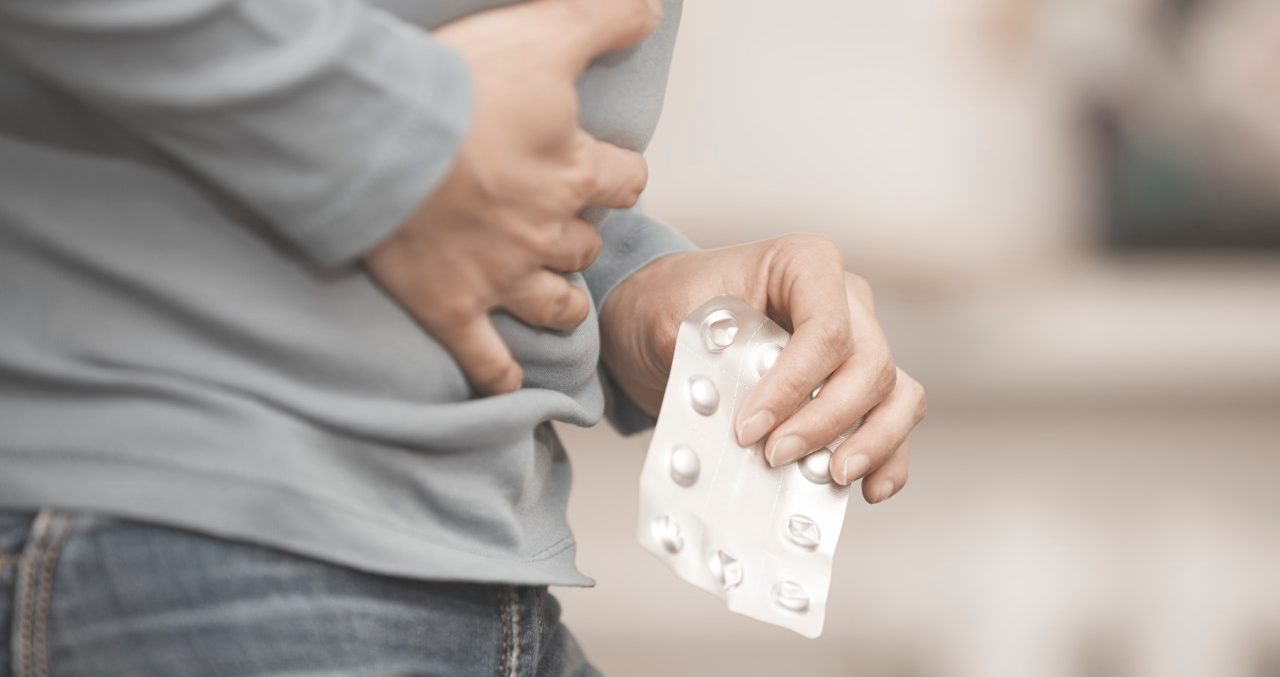Do You Get Stomach Pains After Eating?

If you get stomach pains after eating, you may need to ditch baked beans, ripe bananas and other gassy foods. Another remedy is a particular kind of hypnosis.
If you frequently have stomach pain after eating, then it goes away, you need to look for patterns. Does it happen when you overeat? Does it depend on what you ate?
If rich or spicy foods are a problem, you may have acid reflux, also called gastrointestinal reflux disease orGERD, when stomach acid backs up into your esophagus.
If you get a sharp pain in your stomach, on the left side of your belly, after eating cheese or drinking milk, you have lactose intolerance and need to stay away from dairy.
YOU MIGHT ALSO LIKE: The Health Benefits of Kefir
Pain in the lower abdomen — the lower part of your belly — might arrive just before you have to go to the bathroom. If you tend to have hard stools, or diarrhea — or alternate between the two — you may have irritable bowel syndrome (IBS).
IBS often sets in after a temporary stomach bug. Don’t be embarrassed — IBS may affect as many as one in seven people around the world.
Some people know they have sensitive stomachs. They get butterflies or nauseated or diarrhea before or after emotional events or challenges — like testifying in court, getting married, or selling their house. We have more nerve cells in our intestines than in our spinal cords, and your gut communicates directly with your brain.
You may end up with stomach pains after eating and other IBS symptoms all the time, or during stretches of extra stress. This doesn’t mean that your issue can be dismissed as psychosomatic — it means that you may need to learn specific ways to calm yourself, retraining communication between your gut and brain. Several well-controlled studies show that gut-directed hypnotherapy improves IBS symptoms dramatically and the changes last. This therapy is especially effective for managing pain, including stomach pains after eating.
You may also have an overgrowth of bacteria in your small intestine (SIB0). In fact, some research suggests that SIB0 affects close to 80 percent of patients with IBS, especially if they have diarrhea. You’ll need to be tested, and your doctor may prescribe the antibiotic rifraximin.
In patients with SIBO, bacteria in the small bowel may ferment carbohydrates such as lactose, fructose and the dietary fermentable oligo-, di-, monosaccharides and polyols (FODMAPs), which create gas that can lead to bloating and pain.
Oligosaccharides are long chains of sugars that humans do not have the enzymes to digest. They’re in wheat, rye, onions, garlic, legumes, and lentils — the standard “gassy” foods. You can have trouble with these foods even if you don’t have SIB0 or IBS, but if you do, this gas produces more discomfort.
If you’re always wondering how to get rid of gas pains, try following the low-FODMAP diet, the standard IBS diet, for up to a month. Once you get past the first annoyance at quitting favorite foods, you’ll find easy substitutions. For example, you can’t eat pistachios, but you can eat walnuts. You can eat bananas, but only if they’re not too ripe. The low-FODMAP diet specifies safe and unsafe portions. The hardest part is avoiding onions and garlic in restaurant food.
You might lose weight with this regime if you’ve been eating lots of bread and donuts and the like. Wheat flour is high-FODMAP, which helps explain why so many people feel better going gluten-free.
About one percent of the population has frequent pain in the lower abdomen without diarrhea or constipation — and some doctors say they can benefit from a low dose of amitriptyline, a standard medication for IBS.
Sometimes stomach pain is associated with other serious conditions. Talk to a doctor quickly if you are dizzy, vomit for more than two days, or have bloody or black tar-like stools. If you have a family history of inflammatory bowel disease or cancer or lose more than 10 percent of your weight, you’ll need some testing.
YOU MIGHT ALSO LIKE: Stomach Pain | Heartburn, IBS, Ulcerative Colitis
Updated:
March 26, 2020
Reviewed By:
Janet O’Dell, RN